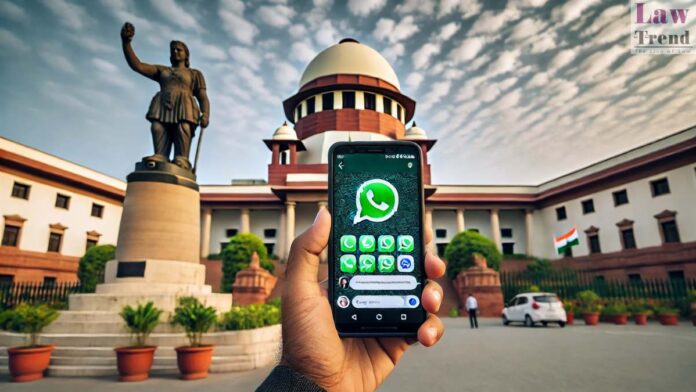The Supreme Court of India has agreed to examine whether private WhatsApp exchanges can attract provisions under Sections 153A and 295A of the Indian Penal Code (IPC). The Court’s decision came while hearing a petition filed by Bal Maharaj alias Santosh Dattatray Koli, challenging an FIR registered against him over alleged inflammatory messages shared in
To Read More Please Subscribe to VIP Membership for Unlimited Access to All the Articles, Download Available Copies of Judgments/Order, Acess to Central/State Bare Acts, Advertisement Free Content, Access to More than 4000 Legal Drafts( Readymade Editable Formats of Suits, Petitions, Writs, Legal Notices, Divorce Petitions, 138 Notices, Bail Applications etc.) in Hindi and English.




